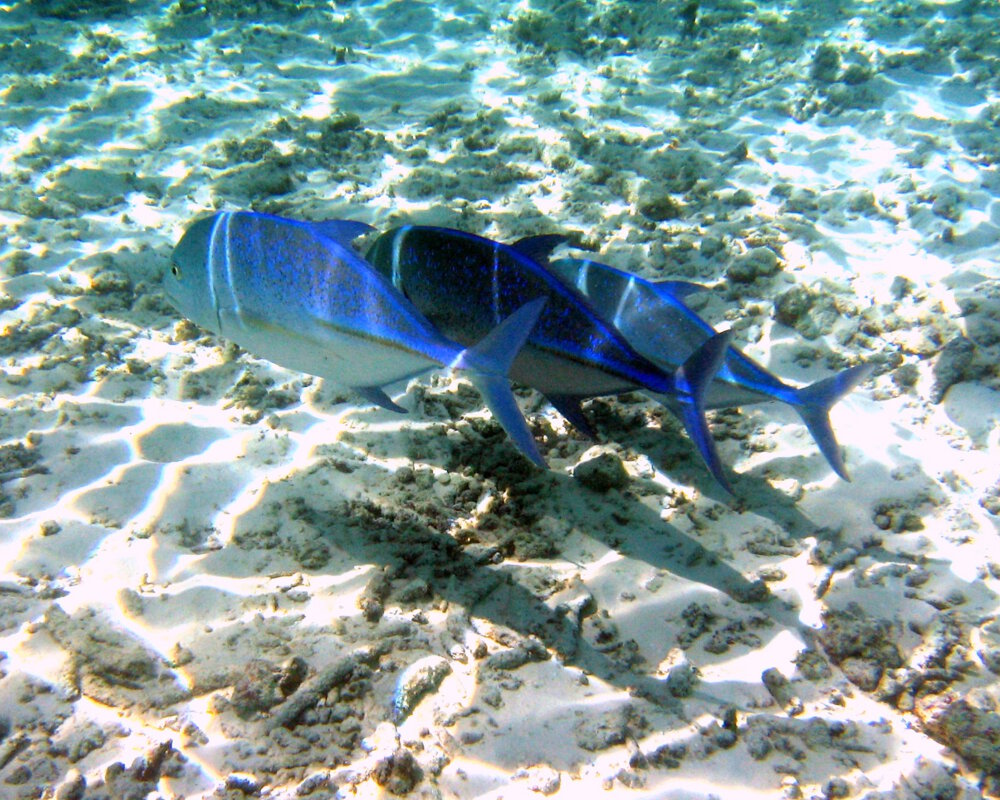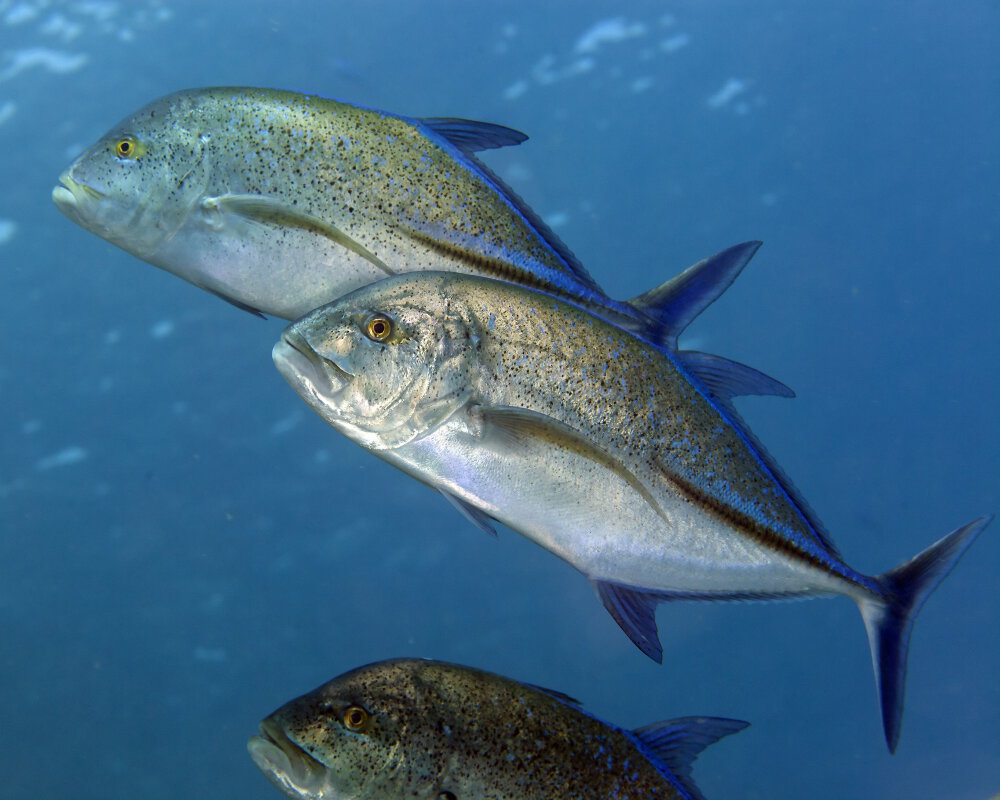Sealife guideThe bluefin trevallyCaranx melampygus
Taxonomy
- Common name: Bluefin trevally
- French name: Carangue bleue, carangue étoilée
- Spanish name: Jurel de aleta azul
- Scientific name: Caranx melampygus (Cuvier, 1833)
- Family name: Carangidae
- Order name: Carangiformes
- Class name: Actinopterygii
Description
The bluefin trevally is distinguished by its bright metallic blue color. Its body is elongated and laterally compressed.
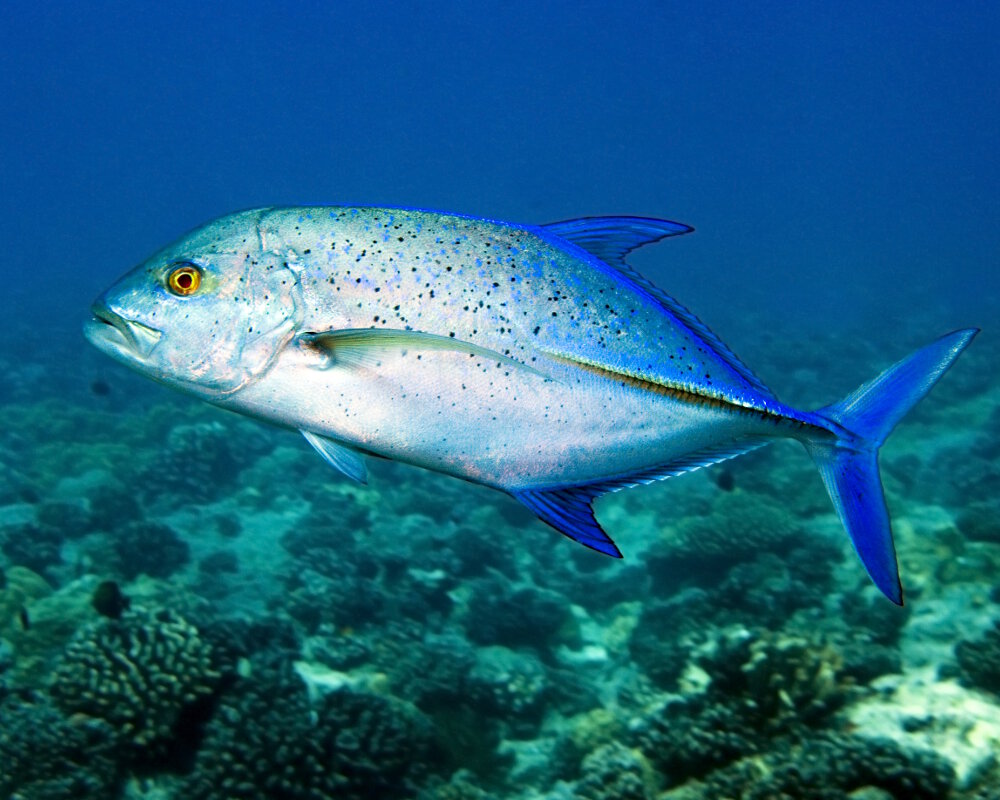
The bluefin trevally is distinguished by its bright metallic blue color © Marco Lijoi | Dreamstime.com
The bluefin trevally is an impressive-sized fish, generally ranging between 12 and 24 inches in length, with some specimens easily reaching up to 35 inches.
Range
The bluefin trevally inhabits the tropical and subtropical waters of the Indian and Pacific Oceans.
In the Indian ocean, the bluefin trevally is found along the coasts of East Africa, the Red sea, the western Indian ocean and the islands of the Indian ocean like the Seychelles, Madagascar and the Maldives.
In the Pacific ocean, the bluefin trevally is present across a vast area extending from the South Pacific islands, Australia and New Zealand to the Hawaiian islands.
Habitat
The bluefin trevally frequents coastal waters, coral reefs, and rocky areas. It often swims in small groups or schools.
Diet
The bluefin trevally is carnivorous, feeding primarily on small fish, crustaceans and cephalopods.
Did you know ?
Due to its impressive size and fighting spirit when hooked, the bluefin trevally is highly prized by sport fishing enthusiasts.
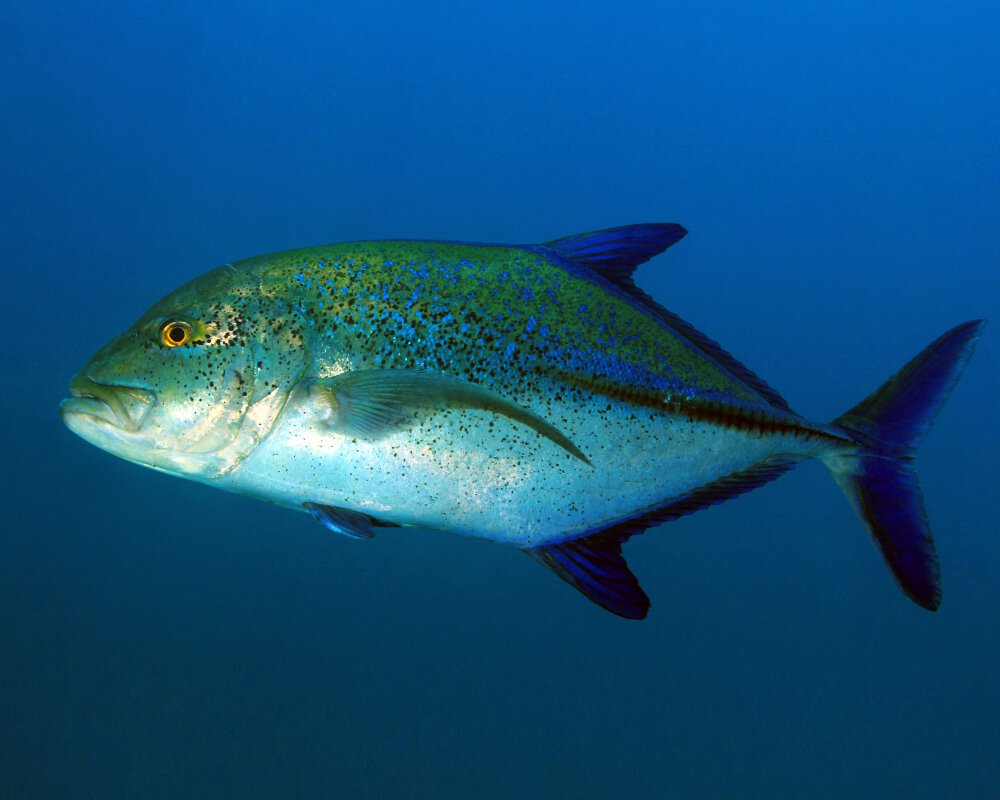
The bluefin trevally (Caranx melampygus) © Andamanse | Dreamstime.com
The bluefin trevally is listed as many other marine species within The IUCN Red List of threatened species. The bluefin trevally appears in the IUCN Red List since 2016 within the category Least Concern !
Within the same genus
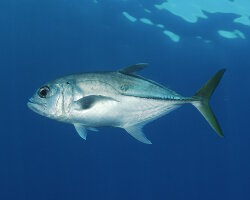
Bigeye trevally
(Caranx sexfasciatus)
(Caranx sexfasciatus)
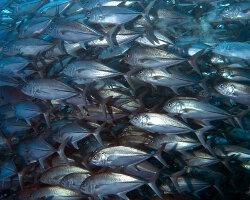
Giant trevally
(Caranx ignobilis)
(Caranx ignobilis)
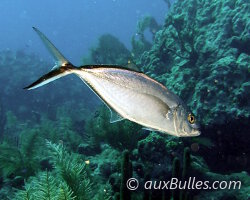
Bar jack
(Caranx ruber)
(Caranx ruber)
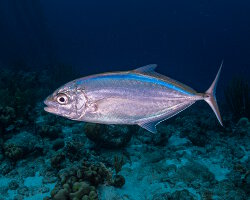
Blue runner
(Caranx crysos)
(Caranx crysos)
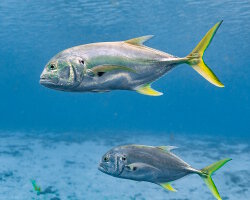
Crevalle jack
(Caranx hippos)
(Caranx hippos)
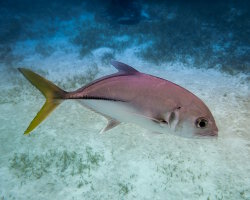
Horse-eye jack
(Caranx latus)
(Caranx latus)
Within the same family
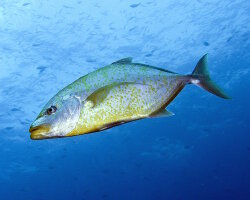
Orangespotted trevally
(Carangoides bajad)
(Carangoides bajad)
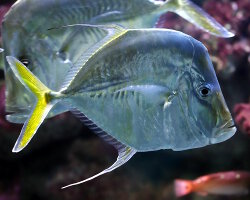
Lookdown
(Selene vomer)
(Selene vomer)
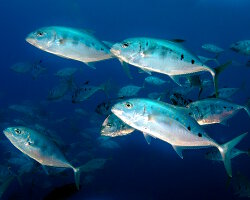
Yellowspotted trevally
(Carangoides fulvoguttatus)
(Carangoides fulvoguttatus)
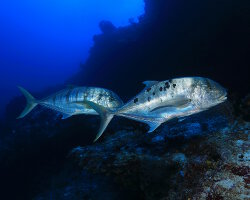
Golden trevally
(Gnathanodon speciosus)
(Gnathanodon speciosus)

Leerfish
(Lichia amia)
(Lichia amia)
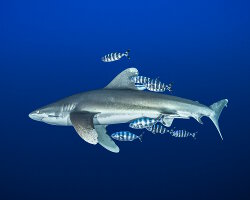
Rudderfish
(Naucrates ductor)
(Naucrates ductor)
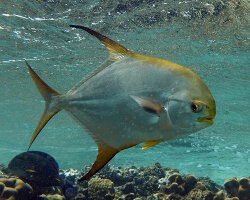
Snubnose pompano
(Trachinotus blochii)
(Trachinotus blochii)

Double-spotted queenfish
(Scomberoides lysan)
(Scomberoides lysan)
Explore also
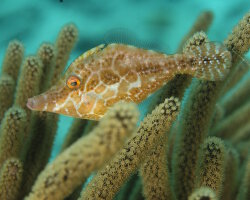
Slender filefish
(Monacanthus tuckeri)
(Monacanthus tuckeri)
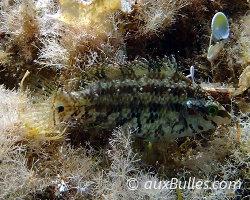
Five-spotted wrasse
(Symphodus roissali)
(Symphodus roissali)

Cigar wrasse
(Cheilio inermis)
(Cheilio inermis)

Pacific Diana's pigfish
(Bodianus dictynna)
(Bodianus dictynna)
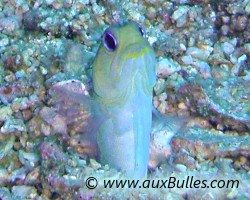
Yellowhead jawfish
(Opistognathus aurifrons)
(Opistognathus aurifrons)

Sabre squirrelfish
(Sargocentron spiniferum)
(Sargocentron spiniferum)
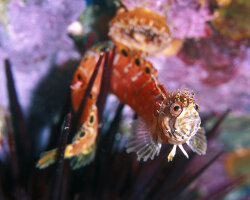
Mosshead warbonnet
(Chirolophis nugator)
(Chirolophis nugator)
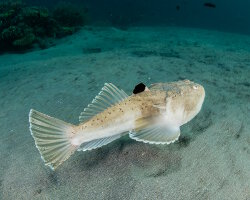
Blackfin stargazer
(Ichthyscopus nigripinnis)
(Ichthyscopus nigripinnis)
Our latestUpdates

Monday, April 14th 2025
The bigeye trevally
The bigeye trevally has a silver-colored body with, as its name suggests, larger eyes compared to other trevally species. It is distinguished from other trevally species by the slightly yellowish color of its tail.

Monday, April 7th 2025
Best things to do in Miami
A flagship city of Florida, Miami is a dream destination where paradise beaches, a vibrant Latino atmosphere and a buzzing nightlife come together. With its year-round sunshine, iconic Art Deco architecture and dynamic cultural scene, Miami has everything to captivate travelers in search of escape.
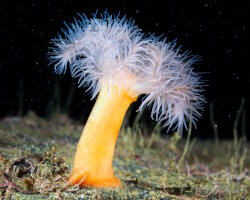
Sunday, March 23rd 2025
The plumose sea anemone
The plumose sea anemone is a key species in temperate and cold marine ecosystems. Its high adaptability, morphological diversity and reproductive strategies make it a crucial organism for understanding biological and ecological interactions in marine environments.
Photo of the Day

Nudibranche à capuchon
(Melibe leonina)
(Melibe leonina)

